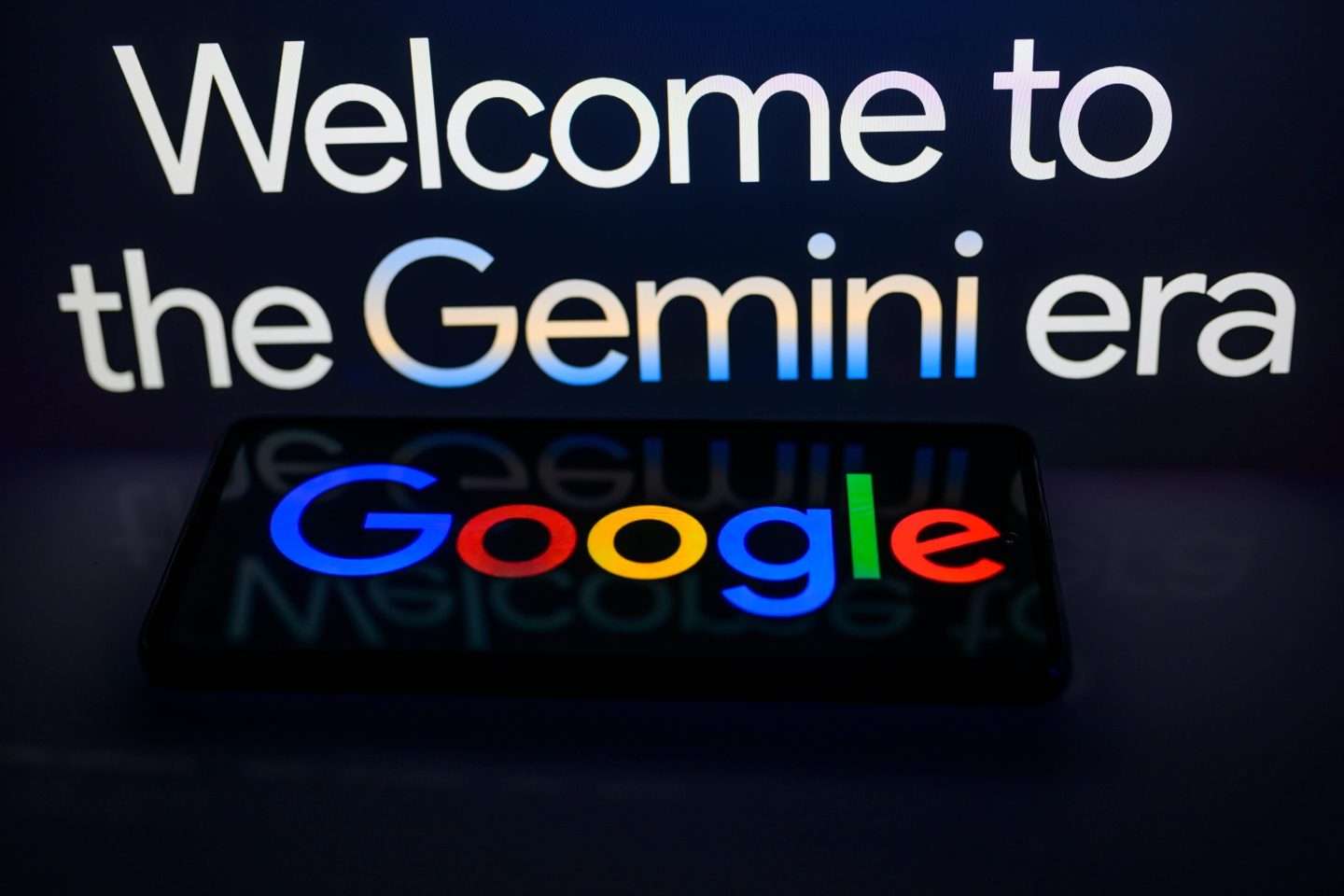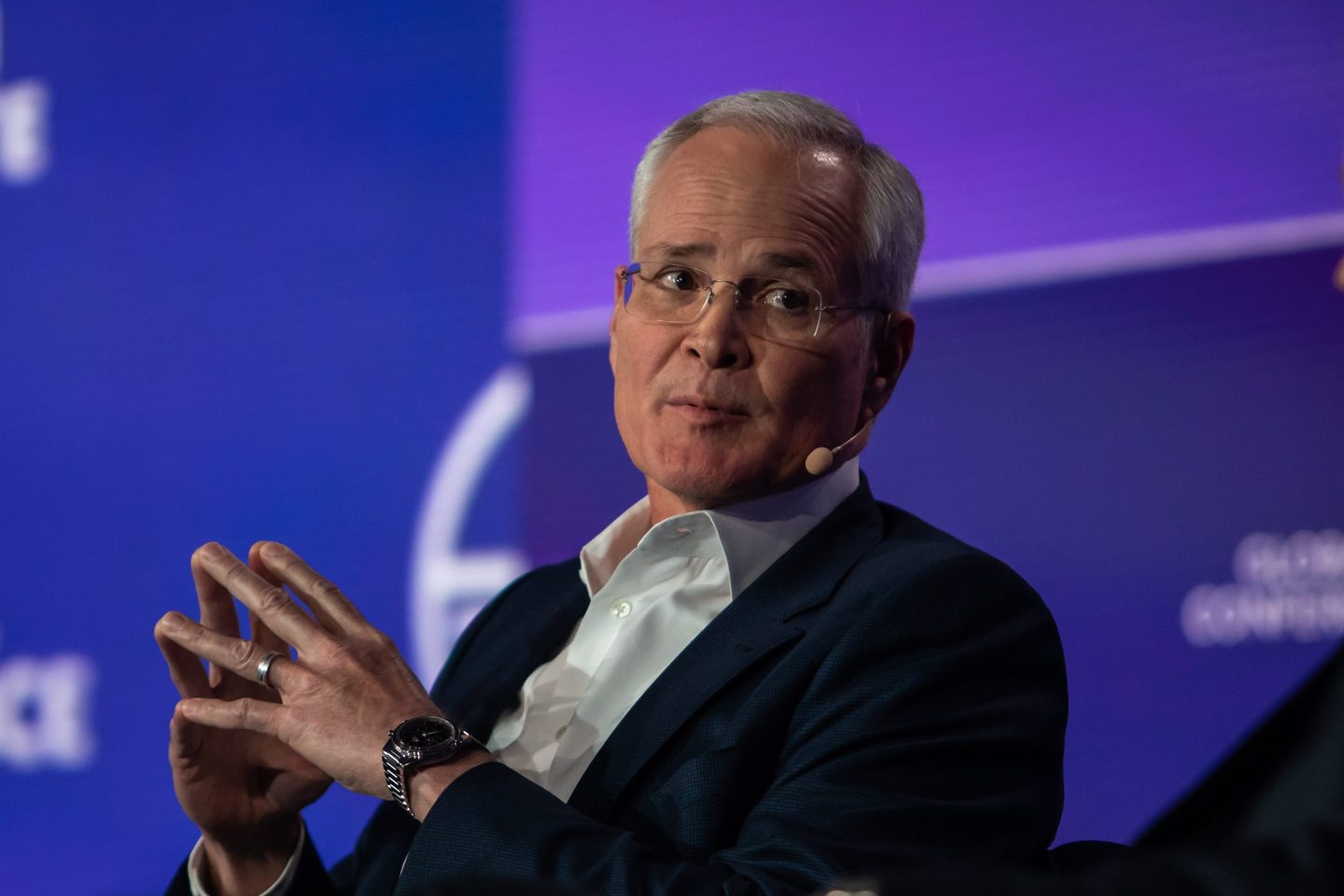Does anyone remember the browser wars? It seems like a lifetime ago when the industry’s superpowers were locked in a contest to offer the most popular browser for “surfing the web.”
For more than five years in the 1990s Microsoft and Netscape pounded each other with a nonstop barrage of proprietary HTML tags, plugins, and decimal-level version updates that ultimately left everyone exhausted.
It sure seems like we’re about to relive those days, as Microsoft (yet again), Google, Meta, and Apple, and countless startups, fight to field the best AI chatbot. On Thursday, Google released its newly renamed Gemini chatbot, which will now be available as a standalone Android app. Microsoft’s riposte could come as soon as OpenAI’s GPT-5 is ready for action (a date that OpenAI has so far kept mum about). And Apple has promised some kind of AI launch later this year.
The rate of advances being made in large language models is astounding, and each new generation’s improvements on things like accuracy and guardrails are very necessary. But there’s also an element of folly in the escalating chatbot wars in which we now find ourselves.
That’s because, as Fortune’s Jeremy Kahn points out in his analysis of Google’s Gemini announcement, the chatbot wars are turning into the streaming wars. Google wants people to pay $20 a month for a premium version of Gemini, which infuses the AI tech into Google productivity software like Docs and Sheets. Microsoft charges $30 a month for users who want its AI CoPilot in their productivity software. OpenAI’s premium version of ChatGPT is $20 a month; even Elon Musk’s X offers its Grok chatbot to users who pay for its $16 per month premium service.
How many AI subscriptions do consumers want or need? You can call it an “assistant,” a “copilot,” or an AI with a “rebellious streak,” as Grok bills itself, but in the end, these bots aren’t really all that different in what they actually do. And just as it’s tough to justify paying for a half dozen different streaming video services, or more than a single streaming music service, it’s hard to envision a world where I need multiple chatbots on my payroll.
There’s more to AI large language models than chatbots of course. The value and utility of the technology is likely to manifest itself in unexpected ways as the industry matures. And that’s crucial because when the dust settles on the chatbot wars, we may find we’ve invested obscene amounts of money, time, and attention to creating a commodity.
If you want to understand AI technology and stay up to date on the latest developments, make sure to read and subscribe to Fortune’s Eye on AI newsletter.
Alexei Oreskovic
Want to send thoughts or suggestions to Data Sheet? Drop a line here.
NEWSWORTHY
Nvidia’s new chip play. Reuters reports that Nvidia is building a new unit to target the $30 billion data center custom chip market. Particularly with AI in mind, cloud giants like Google and Meta have been developing hyper-efficient chips (known as application-specific integrated circuits or ASICs) that are tailored to their data centers. Broadcom and Marvell have been doing nicely from helping them out, and Nvidia—who can’t make enough of its own, industry-leading AI chips to satisfy the market—apparently wants a slice too.
Here is the deepfake news. Hacked TV streaming platforms in the United Arab Emirates broadcast an AI-generated news broadcast claiming to show death and injury tolls from Israel’s military operations in Gaza. Microsoft spotted the incident and pointed the finger at Iran, according to the Guardian. Meanwhile, in the EU, officials are consulting on draft election security guidelines for big social media platforms, in an attempt to mitigate the incoming storm of deepfake risks in this massive election year.
Alternative app stores. Apple’s terms for developers who adopt alternative iOS app stores may be contentious to say the least—and may yet fall foul of the new EU law that’s forcing Apple to make the shift—but the shift has begun. As MacRumors reports, Apple now lets EU developers submit those new app marketplaces to its own iOS App Store, and also to submit apps that will be distributed via those channels for Apple’s “notarization” review process, which is supposed to ensure their security.
SIGNIFICANT FIGURES
25%
—Cloudflare’s share-price leap this morning, showing it isn’t just AI-related companies that are capable of startling rallies this month. The internet-infrastructure and cybersecurity firm recently restructured and its latest earnings beat analyst expectations.
IN CASE YOU MISSED IT
Former top TikTok executive sues company for allegedly requiring women to ‘remain quiet and humble at all times’, by Alexandra Sternlicht
Why did Tim Cook’s pay package hold up in court while Elon’s failed?, by Dylan Sloan
Generative AI is increasingly being used to defraud businesses of big money and no one is prepared, by Sage Lazzaro
‘It seems like something from the far-off future, but this threat is already here’: FCC bans AI-generated robocalls, by the Associated Press
Biden administration may restrict imports of Chinese EVs and their parts no matter where they are built, by Bloomberg
BEFORE YOU GO
Mozilla handover. Speaking of the browser wars, one-time Netscape employee Mitchell Baker has stepped down as CEO of Mozilla Corporation—of Firefox browser fame—again. She will continue as chair of the Mozilla Foundation, which she helped found over two decades ago. Baker was Mozilla Corp CEO from 2005 to 2008, and again from 2020 to yesterday. Her successor is Laura Chambers. As The Register reports, there had been considerable criticism over Baker’s salary as CEO, at a time when Firefox downloads have been decreasing.
This is the web version of Data Sheet, a daily newsletter on the business of tech. Sign up to get it delivered free to your inbox.













